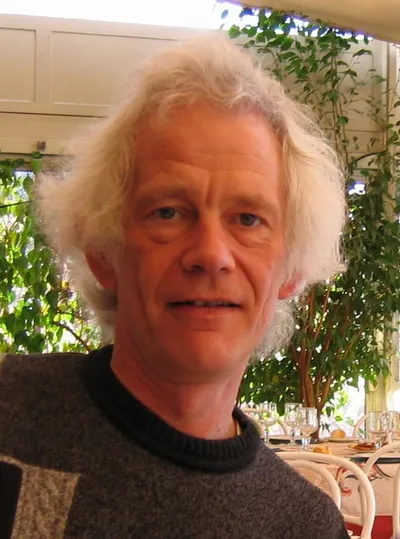Computer Science News
In memoriam: Emeritus Professor Roland Wilson
 It is with great sadness that we report that Professor Roland Wilson passed away on 19 November 2019. He joined the Department of Computer Science as Senior Lecturer in 1985, becoming Reader in 1992 and Professor in 1999, serving as Head of Department from 2006 to 2009, and retiring to Emeritus Professor in 2010.
It is with great sadness that we report that Professor Roland Wilson passed away on 19 November 2019. He joined the Department of Computer Science as Senior Lecturer in 1985, becoming Reader in 1992 and Professor in 1999, serving as Head of Department from 2006 to 2009, and retiring to Emeritus Professor in 2010.
Professor Wilson was one of the world's foremost experts in image processing leading one of the UK's largest image processing groups, at the University of Warwick. He conducted image processing research at an international level for more than 30 years, publishing over 130 papers, and supervising over 20 PhD students to completion. He was jointly awarded the 1985 Pattern Recognition Society medal for best paper in the journal Pattern Recognition.
Roland was renowned for his deep knowledge and understanding of signal and image processing and information theory and was one of the earliest proponents for the idea of multiscale image analysis, an idea common place in modern artificial neural networks. This led to some break-through works in image representations, including spatial/spatial-frequency representations such as the multi-resolution wavelet transform (MFT) for which he and his many PhD students were able to show to have numerous useful applications from image restoration, object detection, image segmentation and music transcription. Many of his ideas developed from interests in the working of the human visual system and further inspired by his long and fruitful collaboration with colleagues from the University of Linkoping, Sweden, Gösta Grunland and Hans Knutsson. This had begun during a visit to Linkoping in the early 1980s.
At Warwick, Roland taught probability theory, digital signal processing (with colleagues from Engineering) and neural computing for many years. Even up to this day, his neural computing course (which he first taught in the early 1990s, way before the current fashions in machine learning) continues to be hugely popular. On it he showed students not only the mathematics and principles of artificial neural networks, but also how it is understood our brains perform computation for perception and how memory works. Roland had a great passion for this subject and a unique and profound understanding of it, having read widely in neuroscience and neurophysiology. Over the years, he has been an inspirational teacher to many hundreds of Warwick computer science graduates.
In 2006 Roland co-founded a University spin-out tech company (Warwick Warp) to apply his ideas on image analysis to the challenging problem of fingerprint matching. He used his knowledge and ingenuity to solve the problem of fast and accurate fingerprint matching and this led to a set of novel methods. These were later patented and a software implementation was bench-marked in 2010, ranking in the world's top three commercial fingerprint matching solutions. The algorithm he devised are being used to this day for humanitarian work with the UNHCR and in a commercial setting for access-control at numerous construction sites in the UK. In 2010, he decided to take part-retirement and to focus more on commercial research, enjoying the challenge of the need to create practical solutions within the constraints of speed and data storage.
Roland was a wonderfully supportive father and grandfather and will be greatly missed by family, friends and colleagues. Our deep condolences are sent to his children Neil and Katy, and grandchildren, Robin, Sam, Charlie and Isla.
Colleagues and friends are invited to attend a celebration of Roland's life at Cannon Hill Chapel, Canley Crematorium, Friday 13 December at 10:30am.
